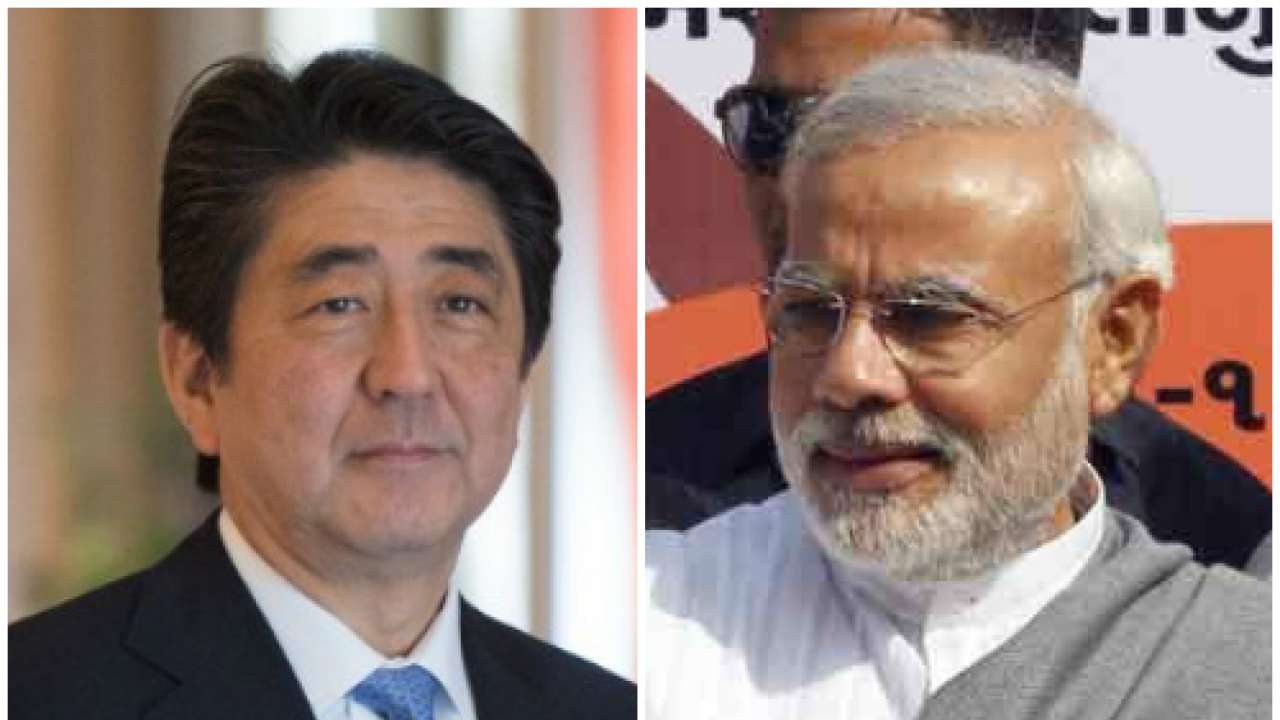
Japan pm shinzo abe follows only 3 accounts on twitter, and narendra modi is one of them
- Select a language for the TTS:
- UK English Female
- UK English Male
- US English Female
- US English Male
- Australian Female
- Australian Male
- Language selected: (auto detect) - EN
Play all audios:
Japanese Prime Minister Shinzo Abe (left) and Indian Prime Minister elect Narendra Modi (right) What could be more of a signal of growing Indo-Japan ties than the fact that Japanese Prime
Minister Shinzo Abe follows only three accounts on the micro-blogging site Twitter through his personal handle @ABESHINZO, and India’s Prime Minister designate Narendra Modi (@NARENDRAMODI)
is one of them. Abe, who seldom tweets in English, on Tuesday, tweeted to Modi, “Great talking to you, Mr. Modi. I look forward to welcoming you in Tokyo and further deepening our friendly
ties.” > .@narendramodi Great talking to you, Mr. Modi. I look forward to > welcoming you in Tokyo and further deepening our friendly ties. > — 安倍晋三 (@AbeShinzo) May 20, 2014 On
May 19, three days after the BJP’s mammoth victory in the 2014 Lok Sabha elections was announced, Abe was among the first international leaders Modi thanked for congratulating him. > My
gratitude to Prime Minister @AbeShinzo for extending his good > wishes. Strong relations with Japan is beneficial for both our > nations. > — Narendra Modi (@narendramodi) May 19,
2014 Modi underscored his personal opinion of the Japanese prime minister, further saying, > Personally, I have a wonderful experience of working with Japan as > CM. I am sure we will
take India-Japan ties to newer heights. > — Narendra Modi (@narendramodi) May 19, 2014 The fact that Abe follows Modi and no other international head of state, not even United States
President Barack Obama or Russian President Vladimir Putin, surely signals even deeper cooperation between two of Asia’s largest economies. This bonhomie between India and Japan is not new.
Ties between the two countries have traditionally been strong. They have, however, witnessed a particular upswing over the past couple of years, and Abe is largely to thank for this. Ever
since Abe was re-elected as prime minister in December 2012, he has dumped Japan’s pacifist policies for a more assertive role in international politics, especially in Asia. This has led to
a rise in tensions with China, which is trying hard to consolidate its position as the military and economic superpower in the Pacific region. To counter China’s rising territorial
ambitions, which threatens and often conflicts with Japan’s, especially in the South China Sea, Abe, widely known as an Indophile, has reached out to India and sought its cooperation on
strategic and geopolitical fronts. As the only major Asian country to have no military disputes with Japan, and the only competing superpower other than China that holds clout in the Asian
geopolitical economy, India stands to gain a great deal from deepening the existing ties with Japan. Narendra Modi and Shinzo Abe already worked together extensively, while Modi was chief
minister of Gujarat. After the US and European countries instated a visa ban on Modi for allegedly failing to prevent the 2002 Godhra riots, Japan was one of the first countries that Modi
turned to for his state's economic development. Maybe the first overseas visit by Prime Minister Narendra Modi would be to meet his Twitter friend, Japanese Prime Minister Shinzo Abe.
ALSO READ: INDIA, JAPAN MUST OVERCOME HURDLES BEFORE TIES CAN BEAR FRUIT ANTI-NUCLEAR ACTIVISTS PROTEST AGAINST SHINZO ABE'S INDIA VISIT